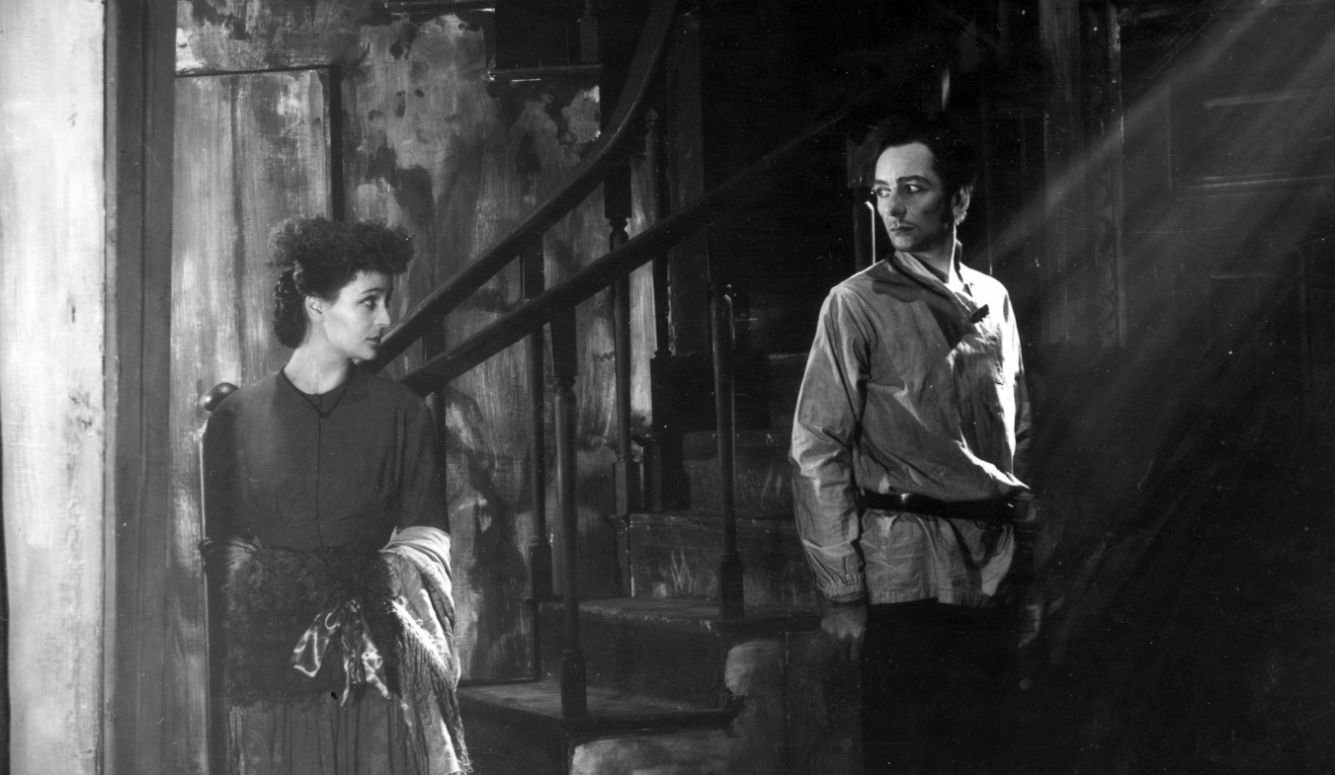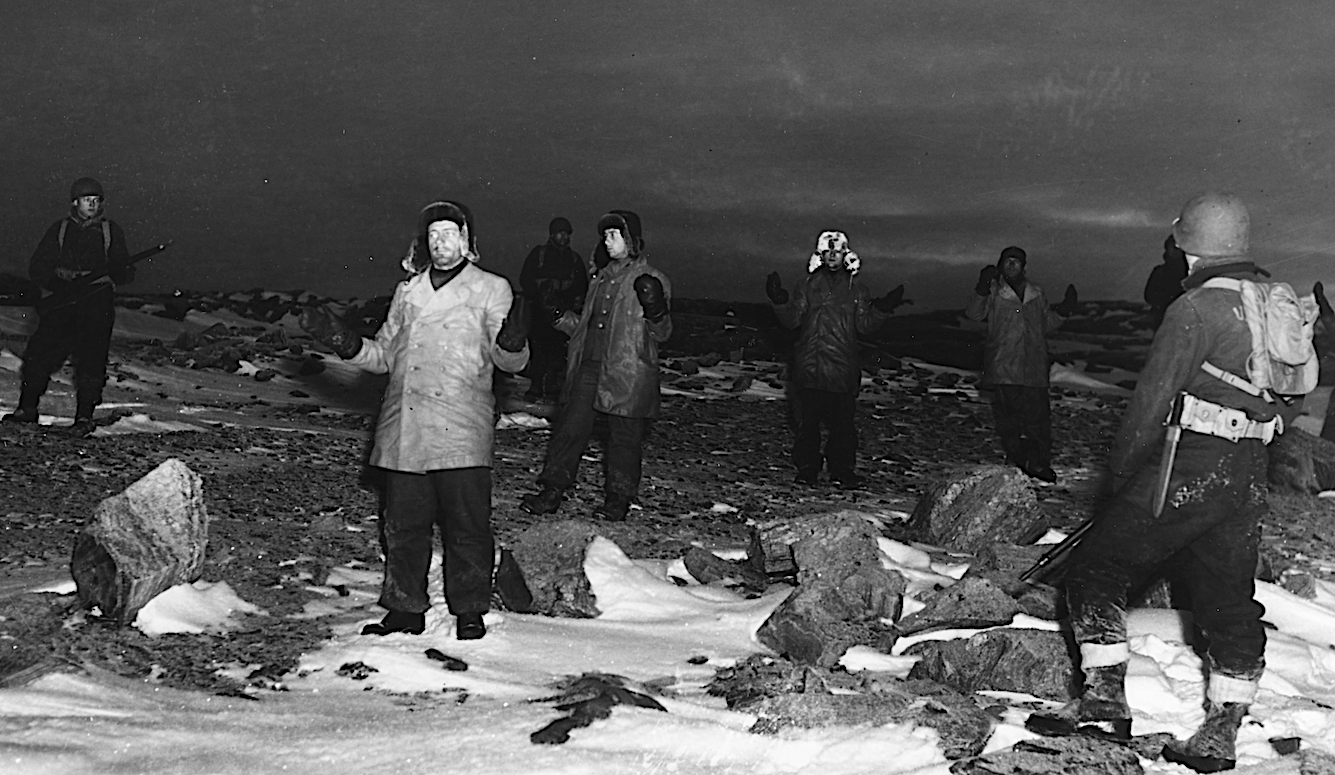Art and Culture
The Eyes of Another
Dostoevsky’s masterpiece, ‘Crime and Punishment,’ offers a radical reinterpretation of guilt and redemption.

Rodion Romanovitch Raskolnikov is a murderer. We know that from the start of Crime and Punishment. The suspense of Raskolnikov’s story comes not from whether or not his crime will be discovered and brought to justice (it will—we know that, too). The suspense comes from whether or not Raskolnikov will turn away from his guilt and shame towards his redemption, which is by no means certain. The story is about how this might be.
Fyodor Dostoevsky’s great novel chronicles Raskolnikov’s violent psychological collapse. The young student’s moral flaw isn’t that he lacks a conscience or a soul, nor is it that he has been infected by the new philosophies of nihilism and radical atheism, though of course he has. Instead, Raskolnikov kills because he becomes obsessed with looking inward for his self-identity; he longs to find within himself a unique man. Dostoyevsky shows us that looking for truth within is itself the source of moral horror: Raskolnikov commits a double murder on principle in an attempt to become what he believes he is: a man apart, self-created and self-affirming. The young murderer implodes under the weight of his own idea of himself.
Raskolnikov has four separate occasions of confession and contrition, none of which effects a transformation within him. Dostoevsky must show us the murderer’s false moments of redemption so that we can recognize the real one when it finally occurs. The first two are private: Raskolnikov confesses his crime first to Sonia, the Christian prostitute who sells herself in order to feed her step-mother and young step-siblings. Then, later, he confesses to his sister.
The next two confessions are public and are moments of real courage for Raskolnikov. The first of these occurs in the center of St. Petersburg’s public square, the Haymarket. Worrying that his crime will soon be discovered, Raskolnikov absentmindedly walks into the marketplace. Once there, he suddenly hears Sonia’s words echoing in his mind: “Go to the crossroads, bow down to the people, kiss the earth, for you have sinned against it too, and say aloud to the whole world, ‘I am a murderer.’” Raskolnikov does just this, and as he does so, he feels a kind of rapture—the lightness of surrender.
This public act of contrition is followed by Raskolnikov’s weary walk up the stairs to the police office. It is here that Raskolnikov at last says to the police, in a soft and broken voice, “It was I killed the old pawnbroker woman and her sister Lizaveta with an axe and robbed them.” This is the utterance that ends the novel proper, and what follows are the two short chapters of the epilogue. One would expect Raskolnikov’s redemption to be accomplished by these private and public confessions—by taking ownership of his actions, by his apology, and ultimately by his submission to justice for the crimes he committed. But this is not what happens.

Dostoevsky shows Raskolnikov to be even more alienated from others while serving his time in Siberia. He is even more heartless to Sonia, who has followed him there. And he is even less remorseful about the murders than he was before his confession. Raskolnikov’s redemption is not about apology nor even about taking responsibility, for both these things serve as a kind of psychological balm that he craves as an antidote to anxiety. It feels good not to have to hide his secret. The emotional and psychological rapture Raskolnikov feels at the moment of public confession comes from no longer having to fear detection. It is a relief from his guilt. Confession is therapeutic, but it is not redemptive.
Ultimately, the murderer wishes to reveal his guilt because concealing it is exhausting. Raskolnikov’s shame is deeper than his guilt, as shame always is. His shame has to do with not being seen rather than with avoiding detection. He feels guilt for what he did, but his shame is of a more subtle nature. Raskolnikov is intensely and personally ashamed of the self-knowledge he works so hard to avoid. It is the knowledge that the man he wanted to be—a desire so profound that he killed for it—was nothing more than an illusion in the first place, a wish-fulfillment fantasy played out in a grotesque experiment. He feels guilt that he came to resemble the grotesquery he created, but he is even more ashamed to admit that his sought individuation is itself the moral horror.
What would he expect to find within himself, other than what he already wanted to see there? The young man’s inward search for truth, untethered from any external relations, is what he believes will free him. Instead, he finds himself trapped in a suffocating nightmare and lost in an expansive wasteland. The uncomfortable truth that Raskolnikov discovers is that one’s inner self may be dark: cruel, evil, petty, and arrogant to the point of inhumanity. The hideous truth that Dostoevsky reveals is that perhaps one’s inner self is even usually this way.
Raskolnikov is ashamed of not feeling shame for his obsession with his own identity, and he covers up this shame with pride in himself, as though pride were the opposite of—and cure for—his shame. He hides even from himself the reason he committed the murder, falsifying his justifications and bragging about them. It was to rob the pawnbroker and help his mother and sister; it was to become like Napoleon, a great man; it was done out of pure spite; it was because the pawnbroker was a “louse”; it was an attempt to become a man of daring. The murderer does not settle on any one reason because he does not want to see the real reason—that to become a self within himself is already a turning away from his humanity. Raskolnikov’s self-identity becomes the fig leaf that hides what he doesn’t want to see: that the self-identity he longs for is a phantasm, though its capacity to haunt him is no less real for that.
Out of pride, Raskolnikov wants to hide from himself the knowledge that his identity is not fully his own. What he does not want to see or acknowledge is that his identity cannot be chosen or discovered from within, but that it comes mostly from without, by the ties that connect him to his family, to his occupation as a student, and to his friends. Raskolnikov’s moral struggle is ultimately not about crime and punishment, but about whether he will be redeemed of his solipsism. It is not until Raskolnikov sees himself clearly from the outside that the emptiness of selfhood he clings to is revealed to him.
For his crimes, Raskolnikov is sentenced to hard labor in a Siberian prison. Out of love, Sonia has followed him there. But though every other prisoner, every townsperson, even every guard, has great affection for Sonia, Raskolnikov resents her presence there on his account. He is “ashamed before her,” but not because he feels penitence for the murders, nor because of his fetters, shaved head, and convict’s striped clothes. These physical humiliations are a kind of costume he wears as a form of pride, as if to say, “I have confessed to murder. Look!” He does not feel ashamed but arrogant. He feels good about himself, now that he no longer feels guilty.

When Sonia comes to visit him in prison, he torments her with his contempt. He must find her contemptible so that he does not see himself as she sees him. Sonia loves him for his shame. She loves him because she sees that he cannot see this part of himself, and it elicits compassion and even tenderness within her. It is seeing himself through her eyes which he fears and hates most, because she perceives that his real sin is uncured solipsism. In this way, she lays a claim to him that he resents, because it means he does not belong wholly to himself. Being loved in this way is an affront to his sense of autonomy.
Raskolnikov’s redemption finally occurs in a single moment of profound unselfconsciousness. It is just after Easter, and he has been committed to the prison’s hospital ward to recuperate from an illness. He wakes in the middle of the night, goes to the window, and sees Sonia in the distance at the hospital gate where “she seemed to be waiting for someone.” In those seven words, Dostoevsky locates Raskolnikov’s redemption. Immediately and without thought or anticipation, the prisoner is changed. “Something stabbed him to the heart at that minute,” the narrator tells us, as Raskolnikov experiences himself as a “someone.” He sees Sonia waiting for “someone,” not for him, not for the “I” that he wanted to keep showing her through his pride in his own individuality, but for a someone that she saw and longed for. He sees himself as someone else through her eyes, a stranger to himself but known by her—and so for a moment his own need to cover himself is unnecessary.
Dostoevsky’s genius was to understand that Raskolnikov’s individuality lies in claims made upon him by others and not in his own inner feelings or desires. Raskolnikov’s attempts at redemption—his psychological anguish, his confession, and his willing submission to punishment—have all been as self-serving as his own guilt. The radical transformation of Raskolnikov happens only when he becomes ashamed of his insistence on his own way of seeing himself. The opposite of shame isn’t pride, it is humility. And the purpose of humility is that it makes receiving love possible. And love is what makes joy possible. By embracing his shame through humility, Raskolnikov becomes capable of experiencing joy.
Sonia comes to see Raskolnikov after he has been released from the hospital ward of the prison. She does not know that he has experienced a transformation produced by seeing her longing for him. It is spring and he is working outside. Raskolnikov is alone and sits on a log overlooking the river. Sonia has been waiting for him for some time and she sits beside him. She smiles at him joyfully when she sees him but holds out her hand to him with timidity. He takes it, and their hands do not part. “He stole a rapid glance at her and dropped his eyes on the ground without speaking.”
It is in this glance that Raskolnikov at last sees himself as he is without shame. He at last understands that he is loved, and overcome by humility, he falls to her feet and weeps. Though she is afraid, Sonia understands what has happened within the prisoner, and we are told that a “light of infinite happiness came into her eyes.” “The heart of each held infinite sources of life for the heart of the other,” writes Dostoevsky. Raskolnikov’s inner self now includes his love for Sonia, a gaze that looks outward. His solipsistic self-discoveries, self-makings, and self-soothing acts of confession have revealed themselves to be hateful because he is finally able to see himself through the eyes of another.






